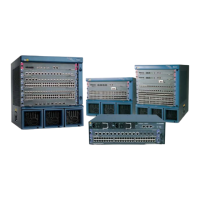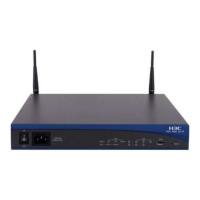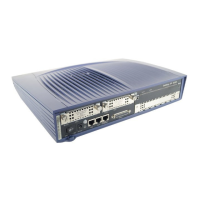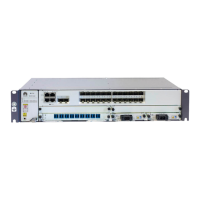5.10.8 Checking the Configuration
Procedure
l Run the display dot1q information termination [ interface interface-type interface-
number [.subinterface-number ] ] command to check information about a dot1q sub-
interface.
l Run the display qinq information termination [ interface interface-type interface-
number [.subinterface-number ] ] command to check information about a QinQ sub-
interface.
l Run the display vsi [ name vsi-name ] [ verbose ] command to check information about a
VSI.
----End
5.11 Configuring a Sub-interface to Access an L3VPN
This section describes how to configure a sub-interface to access an L3VPN on the PE so that
user networks between the CEs can communicate with each other.
5.11.1 Establishing the Configuration Task
Applicable Environment
CEs access the ISP network through PEs. The user data packets sent by the CEs to the PEs carry
one or two tags. You need to configure the sub-interface to access an L3VPN on the PEs so that
the user networks between the CEs can communicate with each other.
Pre-configuration Tasks
Before configuring a sub-interface to access an L3VPN, complete the following tasks:
l Connecting devices properly
l Configuring the VLAN that the CEs belong to and basic Layer 2 forwarding functions to
ensure that the packets sent from the CEs to the PEs carry one or two tags
Data Preparation
To configure a sub-interface to access an L3VPN, you need the following data.
No.
Data
1 Names of the PE interfaces connected to the CEs
2 IP addresses of interfaces
3 VSI names on PE1 and PE2
4 RD and VPN target of the VPN instance
5 Control VLAN ID, and name and number of the sub-interface
Quidway S7700 Smart Routing Switch
Configuration Guide - Ethernet 5 QinQ Configuration
Issue 01 (2011-07-15) Huawei Proprietary and Confidential
Copyright © Huawei Technologies Co., Ltd.
212
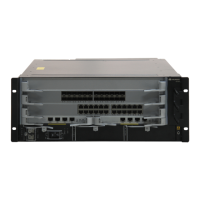
